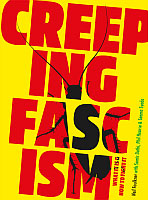“You are welcome, Mr President,” says the Guardian‘s Simon Jenkins: “No conceivable purpose is served by 200,000 people coming to London.”
For an object lesson in the political stupidity of liberalism, Simon Jenkins’ Guardian rant against anti-Trump protestors takes some beating.‘No conceivable purpose is served by 200,000 people coming to London to shout insults at him,’ he loftily intones. But the logic immediately begins to break down. ‘I cannot think what possessed Theresa May to invite Donald Trump in the first place,’ he continues. On the other hand, this, it seems, is just what Britain’s rulers do. After all, explains Jenkins, they invited Romania’s Ceausescu, Zimbabwe’s Mugabe, and Zaire’s Mobutu.
The implication is clear: entertaining dictators, bigots, and thugs is normal. A mind-spinning non-sequitur follows: ‘That is no reason for childish protests against a guest invited in Britain’s name.’
The choice of adjective is interesting. We, the anti-Trump protestors, are ‘childish’. The implication is that we are somehow infantile, in need of guidance and correction. Fortunately, we have grown-up Guardian commentators like Simon Jenkins to assist, people with the education and intellect to know better.
The quality of argument does not improve as the article proceeds. Anti-Trump demonstrations, Jenkins avers, will create a bad impression in America. ‘In my experience, Americans do not understand boorishness in foreigners. They are by nature a courteous people.’
There is so much to unpack here. Where to start? Note another term of abuse: ‘boorishness’. As in: ‘I am critical, you are intemperate, and he/she is boorish.’ When we protest against the nationalism, racism, misogyny, and creeping fascism represented by Trump, that is ‘boorish’. Unlike Jenkins’ rant against us, which, presumably, is not ‘boorish’ – just measured critique.
And I love that sweeping generalisation about ‘Americans’ – all 330 million of them. Jenkins knows them. He knows them ‘by nature’. He must have got around a lot. Because the modern United States is a complex class society criss-crossed with division and conflict, and for every Trump supporter who will be outraged by anti-Trump protests in London there will an African-American, a Hispanic migrant, a trade unionist, a feminist, or an LGBT activist who will want to punch the air if the TV shows mayhem on the streets of London in early June.
For this is a global struggle. Unlike Jenkins, we do not operate in a series of nationalist silos, making ignorant, sweeping generalisations about Americans (or Germans, or Muslims, or any other ‘imagined community’; we see ourselves as internationalists engaged in a global struggle against a rising tide of nationalism, racism, and fascism – of which Trump is the global brand leader.
The argument doesn’t improve. Next twist, we learn that demonstrations are an attack on democracy. I cannot divine any other meaning to this passage:
‘People yearn to express themselves when they feel the conduits of democracy blocked. From Sudan to Paris to Oxford Circus, the street has lost none of its potency. It appeals to the most basic social instinct, that of like minds congregating. But unless there are consequential gains to such action, it is mere self-indulgence. Those fortunate enough to live in a democracy should not lightly short-circuit its institutions.’
I will pass over the deliberate choice of language designed to imply that we, the protestors, are primitives, exercising some primeval need to ‘congregate’. What really threw me was another breathtaking non-sequitur.
I thought the threat to democracy came from the fascists. I thought that’s why we were planning to go onto the streets to contest the state visit. But no: it turns out that we are the threat. For Jenkins, those who exercise their democrat right to protest a decision imposed upon them by the political elite – for the planned state visit is a decision of the Tory regime and no-one else – apparently they are ‘short-circuiting’ democracy. Really? How does that work exactly? I thought even liberals believed that public protest is part of democracy, not its negation.
But no, I’ve obviously got that wrong: demonstrations are bad, ‘debates’ are good. ‘The operative word is debate,’ Jenkins informs us, as if these were pearls of philosophical wisdom handed down from Hegel’s Heidelberg.
‘No-platforming never wins debates. Abandoning the debating chamber is always dangerous. It invites reaction.’
Wrong, both historically and theoretically. This is the stupidity of liberalism. Unlike Jenkins, I choose my words carefully. I do not accuse him of ‘childishness’. But I do accuse him of stupidity – stupidity founded on ignorance of political history and social theory. Let me explain.
Nationalism, racism, and fascism are not rational. Nations are imagined communities founded on invented traditions. Racism is a corollary, inextricably linked to the division of the world into artificially constructed ‘nations’. Fascism is an extreme, a more proactive and threatening form of nationalism and racism. That is why you don’t ‘debate’ with the Far Right. Mussolini and Hitler, Trump and Bolsonaro, Salvini and Farage are not open to ‘debate’. They are building movements based on ignorance, bigotry, and hate.
And no-platforming is the very essence of anti-fascism. The Vienna workers’ uprising of 1934 was an entire city no-platforming the proto-fascist Dollfuss regime. The Spanish Revolution of 1936 was an entire people no-platforming Franco’s fascist coup. These struggles went down to defeat. Here, for Simon Jenkins’ education, are two no-platform struggles that did not.
In October 1936, Oswald Mosley’s British Union of Fascists wanted to march through the Jewish quarter of Whitechapel. The East London working class mobilised to stop them. The police spent an afternoon trying to baton-charge a way through the barricades for the fascists. They were defeated. The workers, not the fascists, controlled the streets. The BUF went into decline. Britain did not go fascist – unlike virtually the whole of the rest of Europe.
In August 1977, John Tyndall’s National Front wanted to march through Lewisham, home to a large Afro-Caribbean community. Protesters mobilised to stop them and reduced their march to a shambles. The NF went into decline. The Anti-Nazi League was founded in the wake of the Battle of Lewisham. The central strategy of the ANL was no platform. The aim was mass popular mobilisation to stop the fascists marching, meeting, operating. Our aim was to destroy their organisation ‘by any means necessary’. This we did.
Jenkins ends his piece with a sentence of sickening obsequiousness: ‘You are welcome, Mr President.’
That is liberal stupidity writ large. An unopposed visit will be a carnival of reaction, giving confidence to the Tory Right, the Brexit Party, UKIP, and every flag-waving nationalist, racist, and misogynist in Britain.
Do we need lessons from Simon Jenkins in how to fight fascism? I think not. History certainly suggests not. Join the protests in June against the Trump state visit to say, not in our name.
Neil Faulkner is the author, with Samir Dathi, Phil Hearse, and Seema Syeda, of Creeping Fascism: what it is and how to fight it (Public Reading Rooms).
 Creeping Fascism: What It Is and How To Fight It
Creeping Fascism: What It Is and How To Fight It
By Neil Faulkner with Samir Dathi, Phil Hearse and Seema Syeda
How can we stop a ‘second wave’ of fascism returning us to the darkest times? How do we prevent the history of the 1930s repeating itself?

